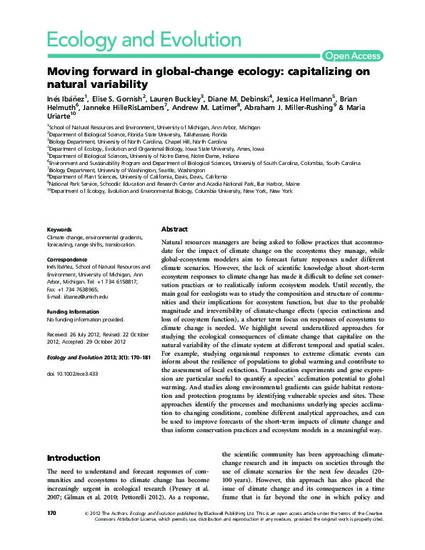
Natural resources managers are being asked to follow practices that accommodate for the impact of climate change on the ecosystems they manage, while global-ecosystems modelers aim to forecast future responses under different climate scenarios. However, the lack of scientific knowledge about short-term ecosystem responses to climate change has made it difficult to define set conservation practices or to realistically inform ecosystem models. Until recently, the main goal for ecologists was to study the composition and structure of communities and their implications for ecosystem function, but due to the probable magnitude and irreversibility of climate-change effects (species extinctions and loss of ecosystem function), a shorter term focus on responses of ecosystems to climate change is needed. We highlight several underutilized approaches for studying the ecological consequences of climate change that capitalize on the natural variability of the climate system at different temporal and spatial scales. For example, studying organismal responses to extreme climatic events can inform about the resilience of populations to global warming and contribute to the assessment of local extinctions. Translocation experiments and gene expression are particular useful to quantify a species’ acclimation potential to global warming. And studies along environmental gradients can guide habitat restoration and protection programs by identifying vulnerable species and sites. These approaches identify the processes and mechanisms underlying species acclimation to changing conditions, combine different analytical approaches, and can be used to improve forecasts of the short-term impacts of climate change and thus inform conservation practices and ecosystem models in a meaningful way.
Available at: http://works.bepress.com/diane_debinski/26/

This article is from Ecology and Evolution 3 (2013): 170, doi:10.1002/ece3.433.